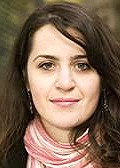 Olivia Pratten
Olivia Pratten
For journalist Olivia Pratten it's a victory after a two-and-a-half-year legal battle. She was born in 1982 after her mother was inseminated with donor sperm at the Vancouver infertility clinic of Dr. Gerald Korn. She tried in vain to find out who the sperm donor was, then launched a class action lawsuit on Oct. 24, 2008, on behalf of all in B.C. conceived through sperm donation. Her goal was to get the records of B.C. fertility clinics opened so that donor offspring can identify their biological fathers.
The court accepted her assertion that parts of the province's Adoption Act are unconstitutional. It discriminates against children born from donated sperm because it doesn't let them find their biological roots as adopted children can. Adult adoptees are allowed to search for their birthparents' names.
Anonymity is harmful
Supreme Court Judge Elaine Adair ruled that anonymous donation "is harmful to the child, and it is not in the best interests of donor offspring." She found sections of the B.C. Adoption Act and regulations unconstitutional in giving the right to information about biological parents to adopted children, but not to children born of artificial insemination with donor sperm. The judge said both adopted children and donor offspring need to know about their biological roots.
The ruling gives the British Columbia government 15 months to amend the law and makes permanent a 2008 injunction against destroying donation records in B.C. Clinical records identify sperm donors, the recipients and the children conceived. Destroying donor records also results in loss of medical information potentially vital to a child's health.
"I'm thrilled," said Pratten, a journalist at The Canadian Press in Toronto. "It's finally validation of what people like myself have been saying for years." However she still won't be able to find her biological father, since Dr. Korn destroyed her mother's files after keeping them the required six years.
Her lawyer, Arvay Finlay of Vancouver, called it "a monumental victory for our client, Olivia Pratten, and all the donor offspring" who have been disadvantaged under a discriminatory law. Arvay said that henceforth anonymous egg and sperm donation will not be allowed in B.C., but the ruling applies only in that province.
The Attorney General of B.C. hasn't decided if the ruling will be appealed.
The adoption experience shows the way
In her Reasons for Judgment Judge Adair considered the best interests of the child: "... using an anonymous donor remains the choice of many would-be parents who want to have control over what their child knows, when their child knows it, and who might be involved in their child's life. ... But, based on the evidence in this case, I have concluded that anonymity is not in the child's best interests."
"Strong and positive relationships with social parents," she wrote, "do not satisfy or eliminate the desire and need of donor offspring to know where they came from, and their need to know their origins is just as powerful and real as those of adoptees."
She saw parallels with the need of adoptees to know about their background and roots: "... the Royal Commission's report, the background to the amendments to the Adoption Act and Ms. Scarth's evidence [Sandra Scarth, president of the Adoption Council of Canada] all support the conclusions that there is much to learn from the adoption experience in considering the needs, circumstances and best interests of donor offspring, that there are many points of similarity between the two groups, that donor offspring share with adoptees many of the same social, psychological and medical needs for information about biological parents, and that, even if well-intentioned, serious harm can be caused by cutting off a child from his or her biological roots."
For further quotations from the Reasons for Judgment see "Court cites adoption example in banning anonymous B.C. sperm donors".
Children need the truth
Commenting May 21 on the ruling, bioethicist Dr. Vardit Ravitsky
of the Faculty of Medicine at University of Montreal said, "By putting the well-being of children first and acknowledging the rights of donor-conceived individuals to know the identity of their donors, British Columbia is joining a respectable and growing list of jurisdictions that have banned donor anonymity in recent years. But unless they are told the truth about the circumstances of their conception by their parents, children will not be able to access information that can be crucial for their health and psychological well-being."
Links
Reasons for Judgment, in Pratten v. British Columbia (Attorney General), 2011 BCSC 656B.C. judge says anonymity for sperm, egg donors is unconstitutional, Canadian Press, May 19, 2011
BC Paternity Decision, Interview with Olivia Pratten, CBC Radio One, As it Happens, Part 2, May 19, 2011, duration 00:06:38
Landmark ruling ends sperm and egg donor anonymity in B.C., Globe and Mail, May 19, 2011
B.C. judge allows 15 months for discriminatory sperm-donor law to be reworked, The Province, May 19, 2011
B.C. lawsuit: sperm donor offspring seeks her biological father, Family Helper, Nov. 12, 2008 ________________________________________
You may reproduce this item with the credit:
"From Family Helper, www.familyhelper.net"




